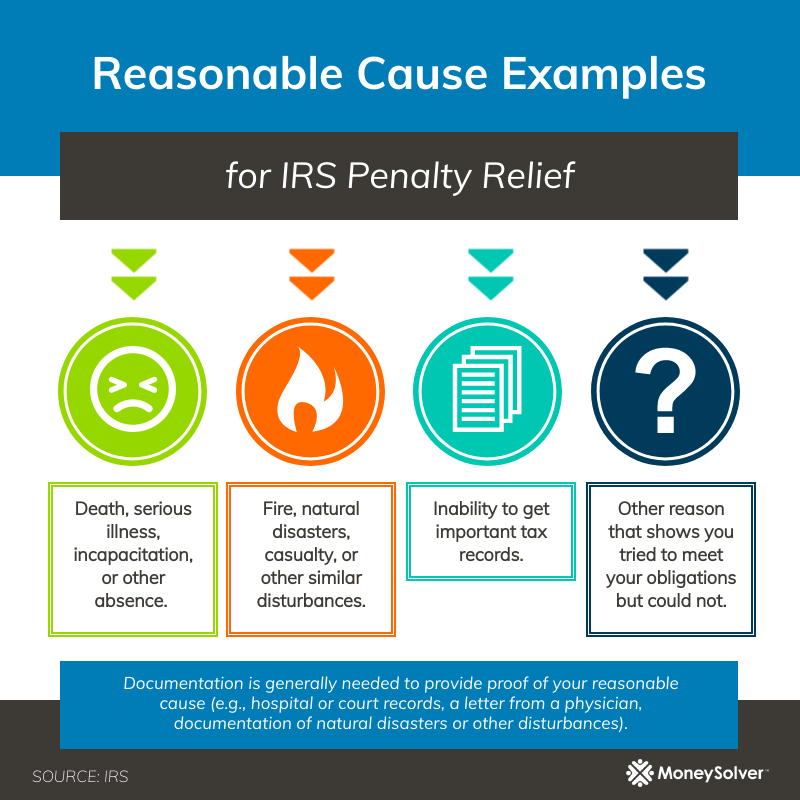Tax Day 2019 has come and gone. The deadline for filing your taxes was this past Monday, April 15 (unless you are a resident of Maine or Massachusetts, in which case your deadline was this past Wednesday, April 17). If you forgot to file or request an extension in time, you’re now officially late in filing your 2018 taxes. But what does that even mean? What happens if you forgot to file taxes on time? We’ll walk you through the consequences of not filing on time and what you can do about it.
If you forgot to file, you could face the pesky failure-to-file penalty.
The IRS may assess the failure-to-file penalty to any taxpayer who does not file by the deadline and who has an outstanding tax balance. The failure-to-file penalty is 5 percent of your unpaid taxes for each month your tax return is late (up to 25 percent). You’ll also get plenty of reminders from the IRS to file your taxes.
Think you can avoid this penalty by filing today? Unfortunately, it starts accruing the day after the deadline.
If you owe taxes, the IRS could hit you with extra penalties, interest, and worse.
Forgot to file taxes and have an outstanding tax bill? If you didn’t pay the IRS the full amount of taxes owed, you could be facing a failure-to-pay penalty. If you’ve got the failure-to-file and the failure-to-pay penalties running at the same time, they’ll cap at 5 percent of your unpaid taxes per month.
As far as penalties go though, this year you could be in luck. More people than ever are expected to have underpaid the IRS, thanks to the reform affecting 2018 taxes. To help combat this issue, the IRS has expanded their relief from their underpayment penalties.
If this isn’t your first year forgetting to file your taxes, your consequences could be a lot more severe. In addition to even more penalties, you could face wage garnishment and other levies. The IRS could even take you to court. Now luckily, the IRS won’t take those drastic actions without warning, but it’s still important to remember how serious the IRS can be.
Owe more than you can pay? There are always options like a payment plan or an offer in compromise that you could qualify for.
Say goodbye to your refund until you file.
Got money waiting for you in the form of a tax refund? The good news is that you won’t face the failure-to-file penalty.
The bad news: Unless you file your taxes within three years of the corresponding tax filing deadline, you can kiss that cash good-bye. In 2013, taxpayers who didn’t file left $1 billion in unclaimed federal income tax refunds on the table. And that’s generally cash that people worked hard for but ended up overpaying the government with.
If your choice is filing ASAP or losing money, you’ll want to choose filing every time.
The IRS will consider reasonable causes for not filing by the deadline.
If you’ve got a good reason for not filing your taxes on time, the IRS might hear you out. They must determine whether your reason for not filing on time is sound and established (with proper documentation) before waiving or reducing any penalties. These reasons include:
- Death, serious illness, incapacitation or other absence of the taxpayer or an immediate family member.
- Fire, natural disasters, casualty, or other similar disturbances.
- Inability to get important tax records.
- Other reason that shows you genuinely attempted to meet your tax obligations but could not.

Note that not having enough money to pay isn’t a listed reason for not filing or paying on time. The only exception here is if the reason you don’t have the money to pay is similar to the ones above.
Even if you have a good reason, the IRS typically doesn’t waive any accrued interest on your balance. If the IRS charged interest on a penalty that they are reducing or removing due to reasonable cause, they can reduce or remove that specific interest.
So, what should you do if you forgot to file taxes?
Easy – you should file those taxes ASAP. The sooner you file, the sooner you get your refund. And if you owe the IRS money, the sooner you file, the lower your tax bill.
When paying right away isn’t an option, tax pros can help negotiate with the IRS on your behalf. Our tax professionals are always available to ensure your unfiled taxes are handled quickly and accurately. Tax Defense Network by MoneySolver has been helping individuals and businesses deal with tax issues with the IRS for over a decade, and there’s little we haven’t been able to help with. If your situation is fixable without our services, we’ll let you know that upfront, too. Start with a free consultation today.
